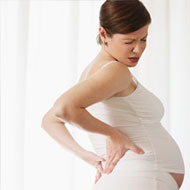The Signs and Types of Early Pregnancy Cramping
The signs of pregnancy cramping are quite easy to distinguish from other types of cramping like menstrual cramps through their frequency and duration. Cramping during pregnancy is a sign that the body is getting ready to expand for the growth of the fetus or that there could be some kind of problem during the pregnancy like a miscarriage.
Most of the time, cramps during pregnancy are just a sign that the body is now adjusting for the increasing size of a fetus. There are even specific cramps that one experiences as a result of the uterine muscles naturally convulsing and practicing for labor itself.
Early Signs of Pregnancy Cramping
The early signs of pregnancy cramping should be taken seriously especially if they are accompanied by vaginal bleeding. This is an indication of a miscarriage and if combined with a continuous abdominal pain could even be the sign of an ectopic pregnancy. This is not a situation to take lightly and presents as a medical emergency. Ectopic pregnancies occur when the fetus starts to grow outside the uterine tissue called the endometrium and is usually found growing in the fallopian tube. This immediately causes extreme bleeding and the body terminates the pregnancy immediately resulting in a miscarriage. Other reasons for the pregnancy signs of cramping include a deficiency in progesterone production. This will result in the hormonal balance tipping in favor of estrogen that will cause a period to start.
A period is basically an inflammatory reaction that causes the destruction of the endometrium causing contractions, pain, and the expulsion of the endometrial tissue from the vagina.
Conditions During Pregnancy Cramping
To a large extent, however, there is no need to feel alarmed about cramping during pregnancy because it is also a natural process of the round ligaments expanding and of the uterine muscles practicing contractions. These are very distinct features and types of cramps compared to the types of pain that you will experience otherwise. There is much to be said about the type of diet you are indulging in, which could be low in electrolytes like potassium. The lack of potassium is a guaranteed way to end up facing cramps though it usually affects all parts of the body. It is important to understand that when you are in your first trimester, you are at your most vulnerable with most miscarriages happening during this time. During this fragile time, it probably is a good idea to keep your doctor abreast of all developments.


